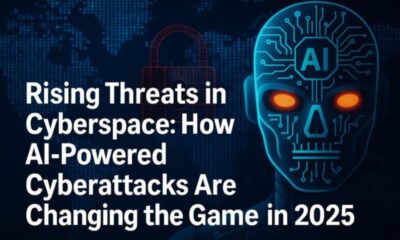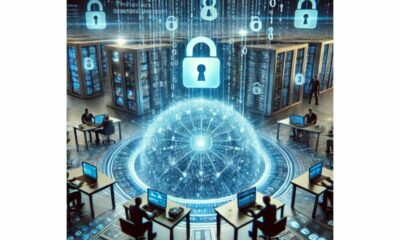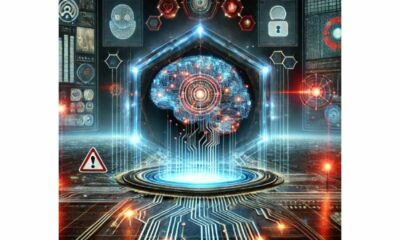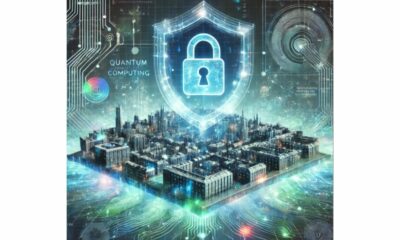Tech
Harnessing Quantum Computing for Unbreakable Cybersecurity Solutions
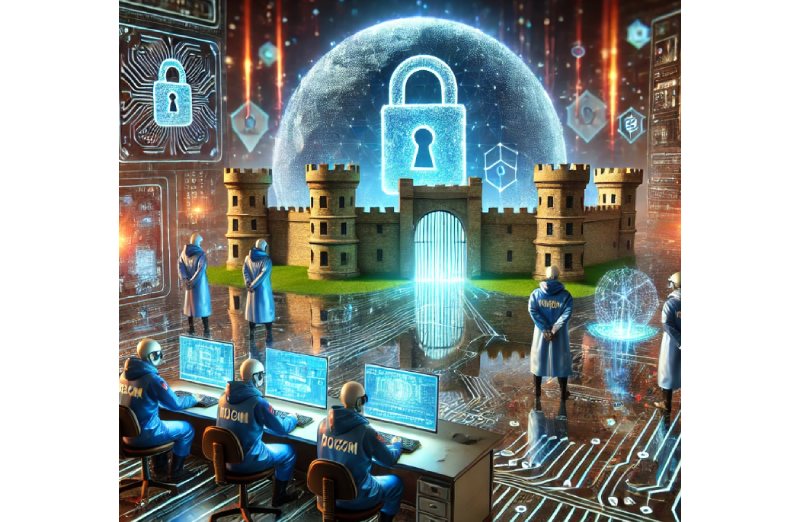
In the ever-evolving landscape of technology, quantum computing has emerged as a revolutionary force, promising to transform the way we secure our digital world. The potential of quantum computing to solve complex problems in mere seconds, as opposed to the years it might take classical computers, is both thrilling and terrifying, particularly in the realm of cybersecurity. At the forefront of this transformation is quantum cryptography, particularly Quantum Key Distribution (QKD). QKD leverages the principles of quantum mechanics, such as entanglement, to create unbreakable encryption methods. By utilizing entangled qubits, two parties can establish a shared key that remains impervious to interception, ensuring secure communication. This innovation holds the promise of creating cybersecurity systems that are immune to hacks, marking a significant leap forward in data protection. However, the path to achieving these unbreakable solutions is fraught with challenges.
Maintaining entanglement over long distances is a significant hurdle, as signal degradation can occur. Researchers are exploring technologies to amplify or repeat the signal without disrupting entanglement, a critical area of study in advancing quantum communication. Another layer of complexity arises in securing the quantum computers themselves. Even with robust communication methods, vulnerabilities in the quantum processing units could compromise the entire system. Organizations invested in quantum technologies are focusing on comprehensive cybersecurity measures that protect both communication channels and processing units. The development of agreed-upon standards and protocols is another critical component. As quantum computing gains traction, ensuring compatibility and security across different systems and jurisdictions is essential. Additionally, the applications of quantum computing extend beyond communication, with potential implications for data storage security, authentication protocols, and even AI security, each requiring tailored solutions. The urgency to develop these new cybersecurity solutions is heightened by the dual-edged nature of quantum computing. While it offers revolutionary potential, it also poses a threat if malicious actors gain access. Therefore, there is a pressing need to implement robust solutions before quantum computing becomes widely accessible. Finally, public awareness and education play a crucial role. Most individuals are unaware of the complexities and implications of quantum computing, necessitating efforts to educate and inform about both the benefits and risks. In conclusion, harnessing quantum computing for unbreakable cybersecurity solutions is a multifaceted endeavor that demands innovation, collaboration, and awareness. As we navigate this new frontier, the potential to revolutionize cybersecurity is immense, offering hope for a future where our digital interactions are inherently secure..
Shanu Khare
Assistant Professor
Chandigarh University
-

 Sports4 weeks ago
Sports4 weeks agoFIFA Club World Cup 2025: Complete List of Qualified Teams and Groups
-

 Sports3 weeks ago
Sports3 weeks agoAl Ahly vs Inter Miami, 2025 FIFA Club World Cup – Preview, Prediction, Predicted Lineups and How to Watch
-
Health2 weeks ago
Back to Roots: Ayurveda Offers Natural Cure for Common Hair Woes
-

 Tech2 weeks ago
Tech2 weeks agoFrom Soil to Silicon: The Rise of Agriculture AI and Drone Innovations in 2025
-

 Sports4 weeks ago
Sports4 weeks agoFIVB Men’s Volleyball Nations League 2025: Full Schedule, Fixtures, Format, Teams, Pools and How to Watch
-

 Startup3 weeks ago
Startup3 weeks agoHow Instagram Is Driving Global Social Media Marketing Trends
-

 Sports3 weeks ago
Sports3 weeks agoWorld Judo Championships 2025: Full Schedule, Date, Time, Key Athletes and How to Watch
-

 Sports2 weeks ago
Sports2 weeks agoFIBA 3×3 World Cup 2025: Full Schedule, Preview, and How to Watch

